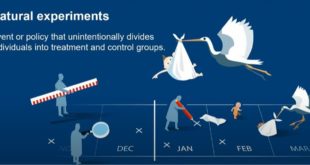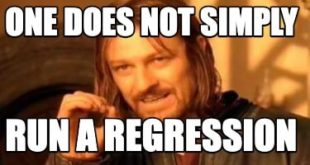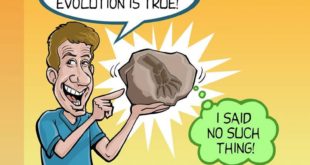Evidently, however, the potential for the strictly natural natural experimental approach, which relies exclusively on natural events as instruments, is constrained by the small number of random events provided by nature and by the fact that most outcomes of interest are the result of many factors associated with preferences, technologies, and markets. And the prospect of the discovery of new and useful natural events is limited … It is clear that the number of natural...
Read More »Instrumental Variables — The Good and the Bad
Instrumental Variables — The Good and the Bad .[embedded content] Making appropriate extrapolations from (ideal, natural or quasi) experiments to different settings, populations or target systems, is not easy. “It works there” is no evidence for “it will work here.” The causal background assumptions made have to be justified, and without licenses to export, the value of ‘rigorous’ and ‘precise’ methods used when analyzing ‘natural experiments’ is often...
Read More »Statistical methods and empirical research
Statistical methods and empirical research David A. Freedman‘s Statistical Models: Theory and Practice (2009) is a marvellous book. It should be mandatory reading for every serious social scientist — including economists and econometricians — who don’t want to succumb to ad hoc assumptions and unsupported statistical conclusions! In the social and behavioral sciences, far-reaching claims are often made for the superiority of advanced quantitative methods —...
Read More »The causal devolution
We who like to imagine ourselves responsible for the public’s knowledge of society despise description and indeed despise the methods that are generally used for quantitative description. Our social indicators are simply disaggregated variables, ready for input to causal analysis. The notions of complex combinatoric description, of typologies based on multiple variables — these fill the average sociologist with disgust. Our disgust is disingenuous, for ease of computing has...
Read More »Randomization-based vs. model-based inference
Randomization-based vs. model-based inference .[embedded content]
Read More »The 20 Best Econometrics Blogs and Websites
The 20 Best Econometrics Blogs and Websites Yours truly, of course, feels truly honoured to find himself on the list of the world’s 20 Best Econometrics Blogs and Websites. 2. Bruno Rodrigues 7. Eran Raviv Blog Statistics and Econometrics 9. How the (Econometric) Sausage is Made 14. Lars P Syll Pålsson Syll received a PhD in economic history in 1991 and a PhD in economics in 1997, both at Lund University. He became an associate professor in economic history...
Read More »Causal inference — Fisher vs. Neyman (student stuff)
Causal inference — Fisher vs. Neyman (student stuff) .[embedded content]
Read More »Statistical assumptions as empirical commitments
Statistical assumptions as empirical commitments Real probability samples have two great benefits: (i) they allow unbiased extrapolation from the sample; (ii) with data internal to the sample, it is possible to estimate how much results are likely to change if another sample is taken. These benefits, of course, have a price: drawing probability samples is hard work. An investigator who assumes that a convenience sample is like a random sample seeks to...
Read More »Statistical reification — a deadly sin
Statistical reification — a deadly sin It would not be an exaggeration to say that many of us see academic statistics as “the sick man of science,” an alarming diagnosis in light of the central role it plays in science in general. The situation is maintained through specious and often byzantine rationales for destructive traditions, which is as expected from another human condition: Blindness to conceptual mistakes when correcting those would threaten the...
Read More »Better than Diff-in-Diff
.[embedded content]
Read More » Heterodox
Heterodox






